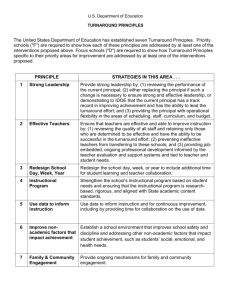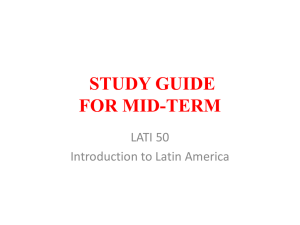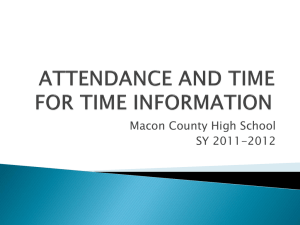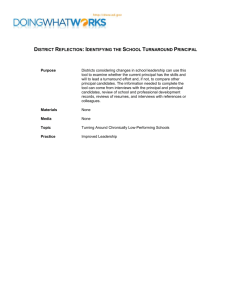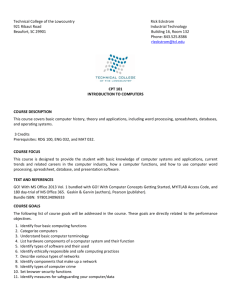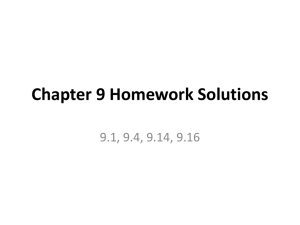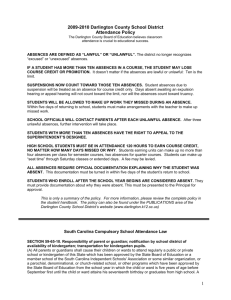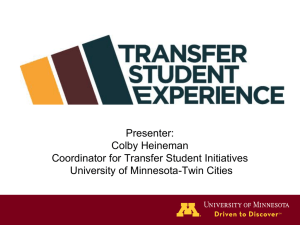A Leader`s Guide for Tx Turnaround Implementation
advertisement
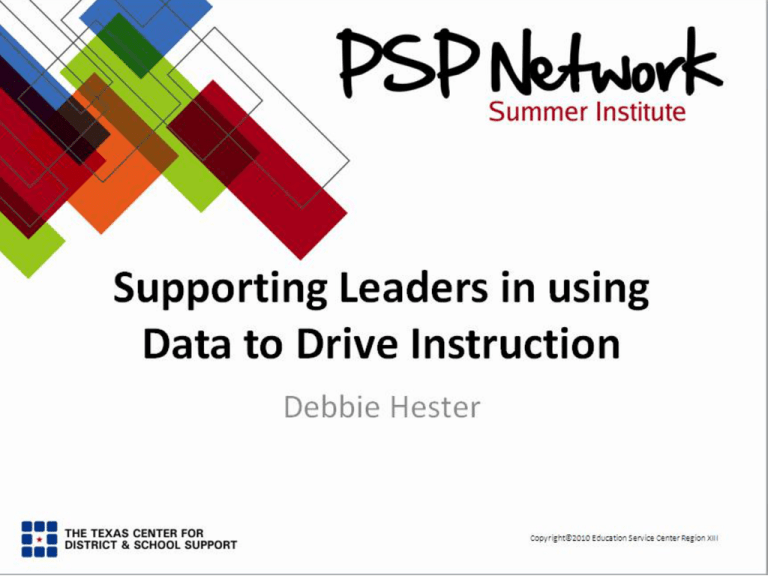
Debbie C. Hester Austin ISD July 9 & 11, 2012 Texas Turnaround Center PURPOSE & OUTCOME Professional Service Providers will be introduced to systemic tools to guide and facilitate school improvement strategies through the job embedded professional development for district and campus leaders of low-performing schools. District Capacity and Will to Support Turnaround Effort EXPECTATIONS The Role of the Principal and their Leadership Team: • Assistant Principals • Academic Dean/Instructional Coaches • Counselors • Teachers • Teacher Assistants Page 4: A Leader’s Guide for Tx Turnaround Implementation Page 8: A Leader’s Guide for Tx Turnaround Implementation REQUIRED DOCUMENTS The focused data analysis (FDA) with student level review (SLR) assists campuses and PSPs in a data analysis process that supports appropriate goal setting and school improvement planning. Results from these analyses will be considerations for the on-site needs assessment and development of the School Improvement Plan (SIP). Focused Data Analysis & Needs Assessment Review Principal & Campus Leadership Teams: • Identify students based on the following criteria Students with 18+ or more absences Students with 5+ removals due to discipline Students not meeting standards on academics in core • Identify teacher effectiveness using the Teacher Demographic Data • Identify trends for high expectations, safety using the Climate Survey Data STUDENT INTERVENTIONS CAUSAL FACTORS Impacting Factor 2. Possible Impacting Factor 3. Not an Impacting Factor 1. School Improvement Plan Strategy SCHOOL IMPROVEMENT PLAN • Site Based Decision Making • Board Approval • Submit to TEA WHAT NEXT? DISTRICT LEADERS How can each department align their work and services to support the implementation of the School Improvement Plan? Pages 16-23 : A Leader’s Guide for Texas Turnaround Implementation WEEKLY CAMPUS SUPPORT Lesson Plan Development Supervising Instruction Progress Monitoring Attendance, Behavior & Academic Interventions Attendance Reflect how attendance impacts academic achievement Number of Grade Students in Attendance Target Group (18+ absences in the prior school year) 6 7 8 0-1 Absences this six weeks 2-4 Absences this six weeks 5 to 8 Absences this six weeks 9+ Absences this six weeks Behavior How does behavior impact academic achievement? Number of Grade Students in Discipline Target Group (5+ removals) 6 7 8 0-1 Referrals 2-4 Referrals 5-8 Referrals 9+ Referrals eCST Service Tracking and Intervention Usage by AU Middle School Campus (2011-2012 SY) (enrollment) Students with service tracking # of service tracking records Students with intervention goals # of intervention goals Bedichek (1,018) Burnet (991) Garcia (422) Lamar (549) Mendez (1,007) Pearce (539) 973 907 338 474 938 604 8,114 7,194 1,825 3,655 7,130 6,823 414 737 290 54 158 249 783 1,985 573 86 211 317 Middle School Campus Note. Campus enrollment as of end of SY 2011-2012. Source. eCST Application, AISD Department of Learning Support Services. INTERVENTIONS • Effective • Highly Effective • Not Effective Engagement Rigor Quality Interactions EVIDENCE OF IMPACT Page 53-56: A Leader’s Guide for Texas Turnaround Implementation Contact Information: Debbie C. Hester, Austin ISD Debra.Hester@austinisd.org
